
As London prepares to host the 2012 Olympics, there's been no shortage of stories on the condition of the buildings erected for the in Athens. The Olympic sports complex is , the man-made lake set up to provide water to the slalom course , and the stadiums built for table tennis and gymnastics . The situation is easy to amplify in a negative way given the economic situation in Greece. the country's debt, or at least part of it, on a rush to build extravagant facilities for the Olympics. While some have pointed out that Greece's travel infrastructure was significantly upgraded because of the 2004 Games, Athens has mostly been cast in a negative light. Is that fair? How have other former Olympic stadiums fared? What exactly happens to host cities after the Olympics?
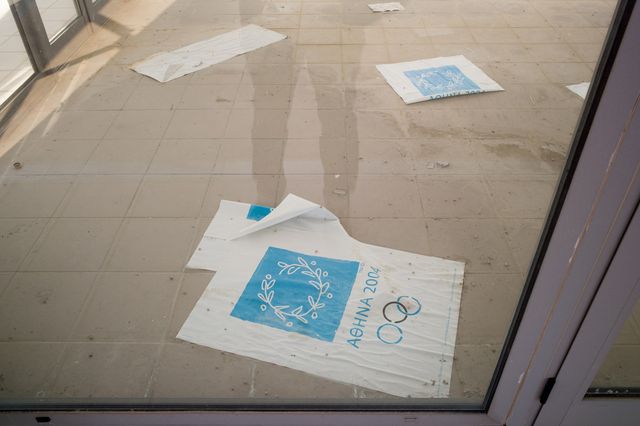
Photographers and have set out to answer that last question. So far they have picked seven former host cities to visit so they can interview people and photograph anything and everything related to the Olympics. Their answer will take the form of a 200-page photo book, , due out in March 2013. The duo started a so they can raise money to travel to seven more cities and finish the project. Those people that donate will get to help pick the last two cities that Pack and Hustwit visit. We emailed Pack to see what they've discovered so far.
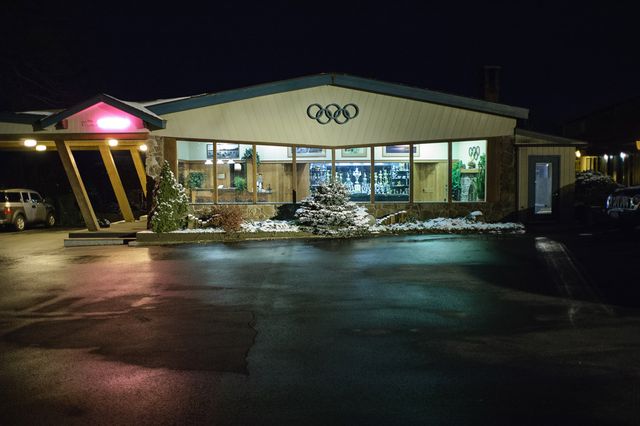
In��the Kickstarter video, you mention that seeing the money spent on the inquired you to wonder what happens to these cities. Why did you decide to turn that question into a huge��project?
��Well, I wasn’t sure at first if it would turn into a project at all.��To be honest, I never had much interest in the Olympics. My wife, on the other��hand, is a big fan and has been��since she was little. She has really happy��memories of writing to invite to dinner in a fan letter when she��was 11. (He never responded.) So leading up to the 2008��Olympics, I found myself��paying more attention than I had to Games in the past. I was intrigued that so��much of the coverage was about the money being spent and the venues��being��constructed for an event that would only last a few weeks. I kept wondering what��would become of these buildings after the Games, so I went on a bit of a��fact-finding��mission and did some research. Then I rented a car and kept it��local, mostly because of money and time constraints, and drove up to Lake��Placid and Montreal.
In Lake Placid, I��stayed at , a hotel opened by a former Olympic ski jumper. The hotel lobby was��jam-packed with his trophies and awards. A handful of dusty shops��on the��village’s main street are filled with all sorts of memorabilia from the 1980��Games—the shops appear to be closed most of the time, but handwritten signs��let interested folks��know how to get ahold of the owners. The former Olympic��Village where the athletes were housed is now a prison—well, it was a prison��first, then a place to house the athletes, and��then a prison again.����Not only��that, but the prisoners helped build the ski jumps used in the Games. So that��trip really invigorated me, and definitely made me feel like this could be a��project worth exploring.
I saw��on the site that you’re photographing L.A., Montreal, Lake Placid, Athens, Rome, Mexico City, and Sarejevo. How are you picking the cities?
��As I mentioned at first I was really just sticking close to home and��driving to a few places to see if I felt like there was a project in the idea.��Then when Gary joined the project,��we talked about where to go next, and based��on some of my research and our conversations about what we were looking to��find, we both agreed that Athens and Mexico City were��musts, since so much had��changed in both places since the Games left. But beyond that, we wanted to hear��from people who are following the project about where we should go. One��of the��great things about launching a Kickstarter campaign is all the feedback that we’ve��gotten. Those tips and ideas, along with our own research, absolutely inform��our choices��when it comes to where we’ll decide to go. And for two of the cities,��we’re leaving those decisions entirely in the hands of our .

Did you have a preconceived notion going in of the effects hosting the Olympics��would have on a��city?
No, I definitely didn’t go into this thinking that I had a good idea��of what I’d be looking at. I really was mostly just interested in seeing what��remained—and that could be��something positive or something negative. I’ve had��people tell me that the Games were a terrible thing to happen to their city,��and I’ve had people tell me the exact opposite. It��really depends on whom you��talk to. And keep in mind that for every abandoned volleyball stadium or empty��swimming pool, there’s a venue that’s been repurposed as a church or a��theater.��This project is very much about both; I want to explore and document both the��good and the bad.
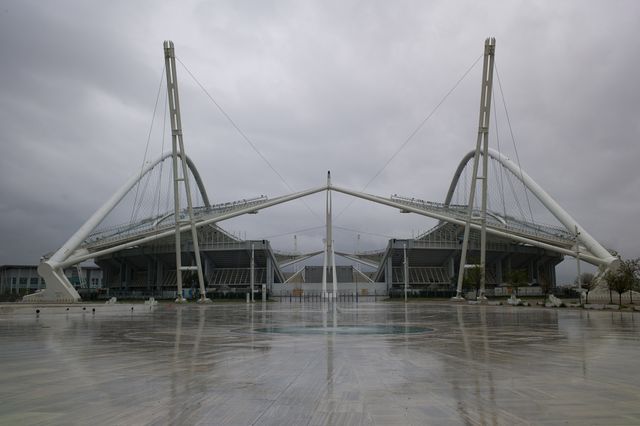
How��are you picking what to photograph?
It’s a tough question to answer because, as a photographer, I tend to��take pictures of what feels right, and that’s still a big part of my��process. But for this project, I will say��we’re as interested in capturing��images of the old structures, either what’s left or what they’ve become, and��anything else that reflects the lasting impression the Games may have��left,��including the cities themselves and, of course, their inhabitants. I met and��photographed some people in Athens and in Lake Placid who were really proud of��their involvement in��the Olympics, and that was one of the best parts of my��trip, so I’d love to try to make those connections as often as I can.
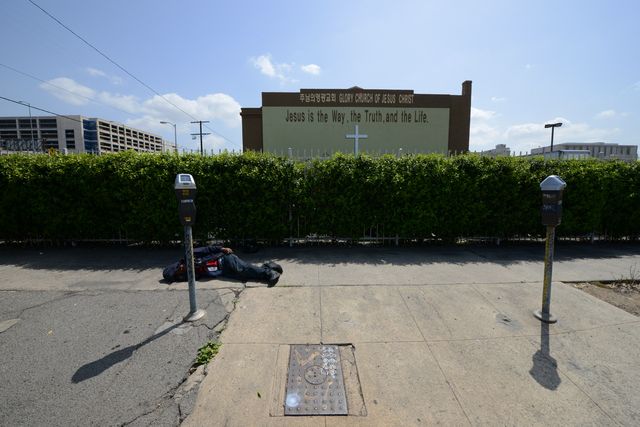
What��has surprised you the most so far?
Since I wasn’t a huge fan of the Games before taking this on, it’s been��really interesting to find that so many people are like my wife—absolutely��passionate about the Olympics, and for so many different reasons. There’s a��great sense of national pride that comes with the Games, particularly for the��host cities, and it really can unify a lot of different cultures��for those��brief few weeks. On the flip side, there are people who feel the Games have��become an overblown spectacle, one that does more harm than good. But like I��said, the��opinions are much more passionate than I was anticipating.
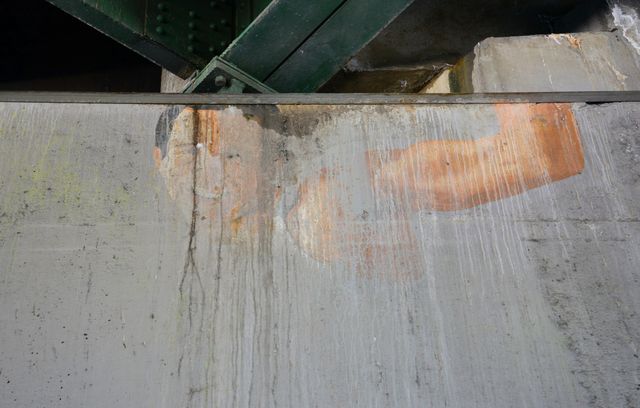
The remains of a 1984 Olympics mural, Los Angeles. Photo: Courtesy of
What��is the biggest negative trend you’ve seen so far in these cities?
There really hasn’t been an overarching trend, and that’s part of what I��think will keep this project so interesting. If every host city allowed the��Games to wreak havoc on their��landscapes and their architecture, I think there��would be less to photograph, in a way. Sure, there’s quite a bit of abandoned��space in Athens, but there is also a beautiful subway and��a lovely theater in a��repurposed badminton stadium. It’s that mix of trends that I’m hoping for.
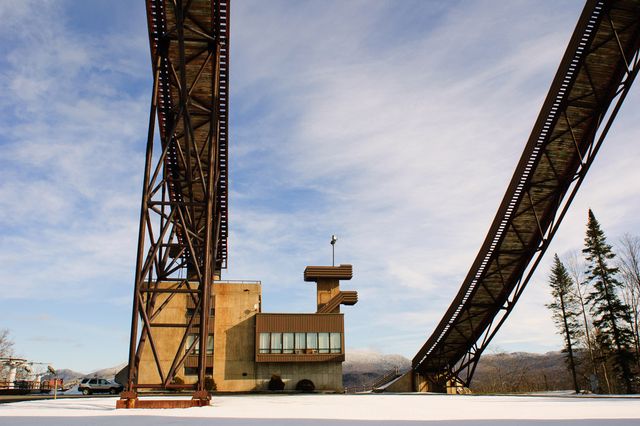
What��do you hope the end result of this book will be?
We want it to be��beautiful, and representative of our work as��photographers and collaborators, both Gary and I, and our designer, the great��. He is going to do an amazing job of��creating the best package to��house these photos.��We also want the impact of the Games to really come through in these photos, to give the reader a sense of the impression they’ve left on these very different cities.
For more, check out .
—Joe Spring